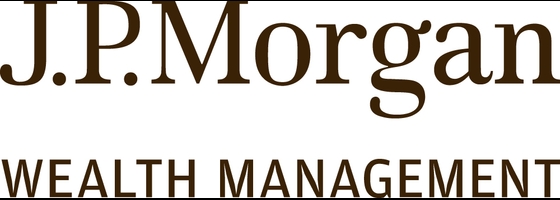Not every investment firm can boast a 200-plus-year history and a slate of founders including the likes of Aaron Burr and Alexander Hamilton—but J.P. Morgan Wealth Management can. And with a wide variety of thoroughly modern offerings, including automated investing and a user-friendly mobile app, the firm has kept up to date.
However, in other ways, J.P. Morgan Wealth Management could be even more future-focused. For example, the firm doesn’t offer cryptocurrency trading, and its robo-advisor investment option is slated to be discontinued in the second quarter of 2024. Still, J.P. Morgan Wealth Management can be a good option for investors looking for an easy-to-master self-directed brokerage account—or access to professional guidance.
Beginners
Beginners
J.P. Morgan Self Directed Investing
Online trading fees
$0 stock & ETF trades; $0.65/contract options trades; $0 mutual funds trades
Promotion
Get up to $700 when you open & fund an account with qualifying new money. Offer expires 1/23/2025.
INVESTMENT AND INSURANCE PRODUCTS ARE: NOT A DEPOSIT • NOT FDIC INSURED • NO BANK GUARANTEE • MAY LOSE VALUE
TIME’s Take
J.P. Morgan Wealth Management offers low-fee trades for those with self-directed brokerage accounts who DIY their investment portfolios online. The firm also offers professional wealth management services for high-net-worth individuals looking for guidance on allocating their assets.
With self-directed and broker-assisted options—as well as a wide variety of investment account types including individual retirement accounts (IRAs) and 529s—J.P. Morgan is a workhorse investment firm that can get the job done for a wide variety of clients, although it has yet to offer direct access to cryptocurrency, forex, or futures trading.
Who is J.P. Morgan Wealth Management best for?
J.P. Morgan Wealth Management works best for:
- Investors seeking and willing to pay for full-service wealth-management assistance
- Beginning DIY investors looking for a low-trading-fee, self-directed investment platform
- Investors focused on old-school, U.S.-listed assets—or who have a separate platform in mind for cryptocurrency trading
- Those who are already Chase account holders
J.P. Morgan Wealth Management: Pros and cons
Like every investment firm, J.P. Morgan Wealth Management has both drawbacks and benefits to consider.
Pros:
- Full-service brokerage service available with assistance from wealth management professionals, along with self-directed and robo-investment options
- No balance minimum for general investment accounts
- $0 trade fees for self-directed online trades of U.S.-listed stocks, options, ETFs and mutual funds ($0.65 per option contract)
- User-friendly online and mobile interfaces make on-the-go wealth management easy
Cons:
- No direct access to cryptocurrency, futures, or forex trading
- Automated investment management options being discontinued in Q2 of 2024
- Trade fees as high as $25 for representative-assisted trades
- Fewer educational resources and third-party research tools than some platforms—which may push beginning investors toward more expensive full-service brokerage accounts
Benefits of J.P. Morgan Wealth Management
In plenty of ways, J.P. Morgan Wealth Management stands out from the competitive crowd—and has the longevity and reputation to back up all its offerings.
Many investment options available
Along with choosing between broker-assisted and self-directed accounts, investors with J.P. Morgan Wealth Management can also open regular taxable brokerage accounts. Retirement accounts including both traditional and Roth IRAs are available, as are 529 plans (though 529s are only for full-service clients).
Low costs for self-directed online traders
For those trading online in a self-directed, taxable brokerage account, J.P. Morgan Wealth Management offers $0 trade fees for many asset classes, including U.S-listed stocks, ETFs, and mutual funds (though a $0.65-per-contract fee applies to options trades). Additionally, self-directed taxable brokerage accounts do not carry account minimum requirements.
Up-to-date technology and tools
J.P. Morgan’s well-matched, user-friendly web and mobile interfaces make trading on the go a cinch even for beginners—although advanced investors may crave more tools than the pared-down platform offers. (For example, charting tools and a Portfolio Builder feature for those with at least $2,500 in their account are available, but drawing tools are not.)
What can be improved about J.P. Morgan Wealth Management
Like any other bank or investment firm, there are some areas in which J.P. Morgan Wealth Management has room for improvement.
More automated investing options
For beginner investors who want the benefit of wealth management advice without the expense of help from a live human, robo-advising can be a suitable middle way. But J.P. Morgan’s automated investment option is on its way out: Per an email from a representative, robo-advising is slated to shutter by the second quarter of 2024, and new accounts can no longer be opened
Even when J.P. Morgan was promoting its robo-advising platform, it cost more than many competitors: Along with a $500 minimum initial investment, the platform required an annual advisory fee of 0.35%. There are plenty of less expensive—and not-going-out-of-business—robo-advisors out there to choose from.
More access to forward-looking assets
For investors interested in trading cryptocurrency or futures, or on the foreign exchange market (forex), J.P. Morgan’s self-directed brokerage account can only be an additional account. The bank doesn’t offer these assets.
More built-in third-party research options
While account-holders have access to J.P. Morgan stock research, as well as research from Morningstar, many competing investment platforms offer much more in the way of third-party research. This can increase confidence for some DIY investors.
How does J.P. Morgan Wealth Management compare?
This legacy firm checks most of the major boxes—but some newer players offer forward-thinking investment choices that J.P. Morgan misses.
|
| $1 for self-directed accounts; $500 for automated assistance (this option scheduled to end second half of i2024) | | | $0 for self-directed cash brokerage accounts; $2,000 for self-directed margin brokerage accounts |
| Self-directed; broker-assisted; individual taxable brokerage; traditional IRA; Roth IRA; 529 (full-service only); automated accounts ending by Q2/24 | Self-directed; automated investing; individual brokerage; traditional IRA; Roth IRA; SEP IRA | Self-directed cash and margin brokerage accounts; traditional IRA; Roth IRA | Self-directed; automated investing; broker-assisted; individual, joint and custodial brokerage accounts; traditional IRA; Roth IRA; Coverdell |
| U.S.-listed stocks, options, ETFs, and mutual funds, fractional shares | Stocks, options, ETFs, IPOs, margin investing, fractional shares | Stocks, ETFs, REITs, options, options, margin investing, cryptocurrency | Stocks, bonds, options, ETFs, margin investing, mutual funds |
| $0 for self-directed accounts (except $0.65-per-contract trade fee for options) | | | $0 for many asset classes; fees apply for bonds, low-priced securities, and options |
| | | | |
J.P. Morgan Wealth Management: In-depth review
Here’s a closer look at J.P. Morgan Wealth Management’s most important features and offerings.
Usability
J.P. Morgan has clearly sunk research and resources into its user experience, providing both web and mobile interfaces that are easy to navigate and use, even for beginner investors. Plus, the app and online portals integrate seamlessly with other JPMorgan Chase products, including Chase banking products—which makes this investment platform even more usable for those who are already JPMorgan Chase customers.
Some experienced investors might find fault with the very lack of tools that make the interface so usable for newcomers. Additionally, while there’s proprietary J.P. Morgan research available at users’ fingertips, fewer third-party resources are integrated.
Investment options
J.P. Morgan offers a solid suite of investment options, including:
- Active self-directed investing.
- Retirement accounts, including Roth and traditional (though not SEP) IRAs.
- 529 plans for full-service brokerage customers.
Along with U.S.-listed stocks, options, ETFs, and mutual funds, J. P. Morgan has recently introduced fractions shares trading into its self-directed investment product. With fractional shares, you can purchase a portion of an eligible security starting at $5, regardless of the asset’s full market share price.
However, some of its competitors feature a more robust offering of diverse investment account types, as well as robo-advising services.
Technology
Estimating its own technology spending at $15 billion, J.P. Morgan has put in the work to bring its bicentennial history into modern times. The app and web portal are both user friendly and easy to navigate, and the integrated tools work well.
Costs
With $0 trade and commissions for many asset classes and a $1 minimum investment for its self-directed investment product, J.P. Morgan Wealth Management can be an affordable option for a variety of investors. However, its full-service brokerage account with active management comes at steeper costs.
Education
With integrated J.P. Morgan research and information from Morningstar, J.P. Morgan does offer some options for beginning investors looking to learn the ropes. However, many other platforms integrate more third-party research options and host easy-to-read blogs replete with basic information—neither of which J.P. Morgan does.
Customer Service
Although the company has been around for more than two centuries, and is one of the largest and wealthiest banks in the world, JPMorgan Chase doesn’t have the best reputation when it comes to customer service, at least per a slate of online reviews. Inquiries are taken by phone at (212) 270-6000 with few other alternatives.
Social features
The J.P. Morgan mobile app—which also serves as bank account management for Chase customers—integrates with Zelle and also allows users to utilize a QR Code to transfer money into a user’s account. There isn’t extensive social media integration, but the app is available for both Android and Apple devices.
Security and reliability
J.P. Morgan is a member of FINRA and the SPIC, and uses a range of security features, including multi-factor user authentification and session inactivity timeouts, to increase the overall security of your online information.
Company reputation
With over 200 years of history under its belt and more than $3.5 trillion in assets, JPMorgan Chase, J.P Morgan Investing’s parent company, is a reputable bank and one of the world’s largest. Even in the face of iffy customer service reviews, the company maintains an A- rating on the Better Business Bureau’s website.
How does J.P. Morgan Wealth Management make money?
Like other banks and investment firms, J.P. Morgan Investing makes money on fees it charges its clients. Even low- and no-fee firms, including J.P. Morgan, do assess some fees (for instance, its $0.65-per-contract fee for trading options). J.P. Morgan Chase also makes money from other goods and services, including Chase banking products and credit cards.
Other J.P. Morgan Wealth Management services
Along with banking and credit card services through its partner Chase, J.P. Morgan offers financial planning through its J.P. Morgan Personal Advisor program. Advice is offered by video or phone call once you fund your wealth management account. The company mentions that most Personal Advisor clients have at least $25,000 worth of investable funds.
TIME Stamp: J.P. Morgan Wealth Management offers user-friendly online and mobile interfaces
A solid option for beginning investors looking for a low-fee, self-directed investment product—or high-net-worth individuals ready to pay for professional guidance—J.P. Morgan has been a presence in the financial industry for a long time for a reason. Although its investment products could use some updating, they’ve aged remarkably well given the company’s 224-year history.
Beginners
Beginners
J.P. Morgan Self Directed Investing
Online trading fees
$0 stock & ETF trades; $0.65/contract options trades; $0 mutual funds trades
Promotion
Get up to $700 when you open & fund an account with qualifying new money. Offer expires 1/23/2025.
INVESTMENT AND INSURANCE PRODUCTS ARE: NOT A DEPOSIT • NOT FDIC INSURED • NO BANK GUARANTEE • MAY LOSE VALUE
Frequently asked questions (FAQs)
Is J.P. Morgan Wealth Management legit?
Owned by a bank whose history spans more than 200 years and over $3.7 trillion in asset holdings, yes, J.P. Morgan Investing is a legitimate product. Of course, investments are by nature risky, and investment holdings are not FDIC insured.
How much money do I need to invest with J.P. Morgan?
You can open a self-directed investment account with J.P. Morgan with an initial investment of as little as $1. J.P. Morgan Automated Investing—which required a minimum investment of at least $500, and an annual account maintenance fee of 0.35%—shut down on May 2, 2024, with its accounts shifting to J.P. Morgan Self-Directed Investing.
How trustworthy is JPMorgan Chase?
Given its stature in the field, JPMorgan Chase is a trustworthy financial institution—although this doesn’t necessarily translate to high praise when it comes to customer service reviews. Still, the company maintains an A- rating with the Better Business Bureau, and many of its customers are pleased with their products.






